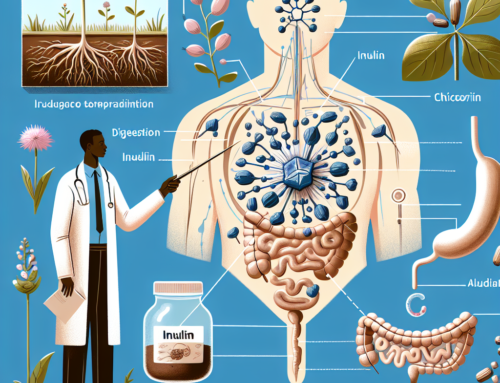Unlocking the power of saffron through science.
The Antioxidant Properties of Saffron
Saffron, known as the “golden spice,” has been used for centuries not only for its distinct flavor and aroma but also for its numerous health benefits. One of the key reasons behind the health benefits of saffron is its powerful antioxidant properties.
Antioxidants are compounds that help protect the body from damage caused by free radicals, which are unstable molecules that can harm cells and contribute to aging and various diseases. Saffron contains several antioxidants, including crocin, crocetin, safranal, and kaempferol, which have been shown to have potent antioxidant effects.
These antioxidants work by neutralizing free radicals and reducing oxidative stress in the body. Oxidative stress occurs when there is an imbalance between free radicals and antioxidants, leading to damage to cells, proteins, and DNA. By reducing oxidative stress, saffron can help protect against chronic diseases such as heart disease, cancer, and neurodegenerative disorders.
In addition to its antioxidant properties, saffron has also been found to have anti-inflammatory effects. Inflammation is a natural response by the immune system to protect the body from injury and infection. However, chronic inflammation can contribute to the development of various diseases, including arthritis, diabetes, and heart disease.
Saffron contains compounds that have been shown to inhibit inflammatory pathways in the body, reducing inflammation and potentially lowering the risk of chronic diseases. By reducing inflammation, saffron can help improve overall health and well-being.
Furthermore, saffron has been studied for its potential effects on mood and mental health. Research has shown that saffron may have antidepressant properties, possibly due to its ability to increase levels of serotonin, a neurotransmitter that plays a key role in regulating mood.
In one study, saffron was found to be as effective as a commonly prescribed antidepressant medication in treating mild to moderate depression. These findings suggest that saffron may be a natural alternative for individuals looking to improve their mood and mental well-being.
Saffron has also been studied for its potential effects on memory and cognitive function. Some research suggests that saffron may help improve memory and cognitive performance, possibly by increasing blood flow to the brain and protecting against oxidative stress and inflammation.
Overall, the antioxidant properties of saffron play a crucial role in its numerous health benefits. By neutralizing free radicals, reducing oxidative stress, and combating inflammation, saffron can help protect against chronic diseases, improve mood and mental health, and enhance memory and cognitive function.
Incorporating saffron into your diet can be a simple and delicious way to reap the benefits of this powerful spice. Whether used in cooking, teas, or supplements, saffron can be a valuable addition to a healthy lifestyle. As always, it is important to consult with a healthcare provider before making any significant changes to your diet or lifestyle.
Saffron’s Potential Anti-Inflammatory Effects
Saffron, known as the “golden spice,” has been used for centuries not only for its unique flavor and aroma but also for its potential health benefits. One of the most intriguing aspects of saffron is its potential anti-inflammatory effects. Inflammation is a natural response by the body to protect itself from harm, but chronic inflammation can lead to various health problems, including heart disease, diabetes, and even cancer. Understanding how saffron can help combat inflammation can shed light on its potential as a therapeutic agent.
Research has shown that saffron contains compounds such as crocin and safranal, which have been found to possess anti-inflammatory properties. These compounds work by inhibiting the production of pro-inflammatory molecules in the body, thereby reducing inflammation. In a study published in the journal “Pharmacognosy Reviews,” researchers found that saffron extract was able to significantly reduce inflammation in rats with arthritis. This suggests that saffron may have the potential to alleviate symptoms of inflammatory conditions in humans as well.
Furthermore, saffron has been shown to modulate the immune response, which plays a crucial role in inflammation. A study published in the journal “Immunopharmacology and Immunotoxicology” found that saffron extract was able to suppress the production of inflammatory cytokines in immune cells. This indicates that saffron may help regulate the immune system’s response to inflammation, potentially reducing the severity of inflammatory diseases.
In addition to its anti-inflammatory effects, saffron has also been found to possess antioxidant properties. Oxidative stress, caused by an imbalance between free radicals and antioxidants in the body, is a major contributor to inflammation. By scavenging free radicals and reducing oxidative stress, saffron can help prevent inflammation from occurring in the first place. A study published in the journal “Food and Chemical Toxicology” demonstrated that saffron extract was able to protect cells from oxidative damage, highlighting its potential as a natural antioxidant.
It is important to note that while saffron shows promise as an anti-inflammatory agent, more research is needed to fully understand its mechanisms of action and potential side effects. As with any supplement or medication, it is always best to consult with a healthcare professional before incorporating saffron into your diet or treatment regimen. Additionally, it is essential to source high-quality saffron from reputable suppliers to ensure its purity and potency.
In conclusion, saffron’s potential anti-inflammatory effects make it a promising candidate for the treatment of inflammatory conditions. Its ability to inhibit pro-inflammatory molecules, modulate the immune response, and scavenge free radicals highlights its multifaceted approach to combating inflammation. While more research is needed to fully elucidate its benefits, saffron’s long history of use in traditional medicine and its growing body of scientific evidence suggest that it may hold great promise as a natural anti-inflammatory agent.
Saffron’s Impact on Mood and Mental Health
Saffron, a spice derived from the flower of Crocus sativus, has been used for centuries in traditional medicine and cooking. In recent years, scientific research has begun to uncover the many health benefits of saffron, particularly its impact on mood and mental health.
One of the key components of saffron is crocin, a compound that has been shown to have antidepressant effects. Studies have found that saffron can help alleviate symptoms of depression and anxiety, making it a promising natural remedy for those struggling with mental health issues. In fact, some research suggests that saffron may be as effective as certain antidepressant medications in treating depression.
Saffron’s mood-boosting properties are thought to be due to its ability to increase levels of serotonin, a neurotransmitter that plays a key role in regulating mood. By enhancing serotonin levels, saffron can help promote feelings of well-being and happiness, making it a valuable tool for those looking to improve their mental health.
In addition to its antidepressant effects, saffron has also been shown to have anti-anxiety properties. Research has found that saffron can help reduce symptoms of anxiety and stress, making it a useful supplement for those dealing with chronic worry or panic attacks. By calming the nervous system and promoting relaxation, saffron can help individuals manage their anxiety more effectively.
Furthermore, saffron has been found to improve cognitive function and memory. Studies have shown that saffron can enhance learning and memory retention, making it a valuable tool for students and individuals looking to boost their cognitive performance. By increasing blood flow to the brain and protecting against oxidative stress, saffron can help support brain health and cognitive function.
Saffron’s benefits for mood and mental health extend beyond its effects on neurotransmitters and cognitive function. Research has also found that saffron has antioxidant and anti-inflammatory properties, which can help protect the brain from damage and reduce inflammation that may contribute to mental health disorders. By reducing oxidative stress and inflammation, saffron can help support overall brain health and well-being.
Overall, the science behind the benefits of saffron for mood and mental health is promising. From its antidepressant and anti-anxiety effects to its cognitive-enhancing properties, saffron has the potential to be a valuable natural remedy for those looking to improve their mental well-being. As research continues to uncover the many health benefits of saffron, it is clear that this ancient spice has a bright future as a powerful tool for promoting mental health and overall well-being.






